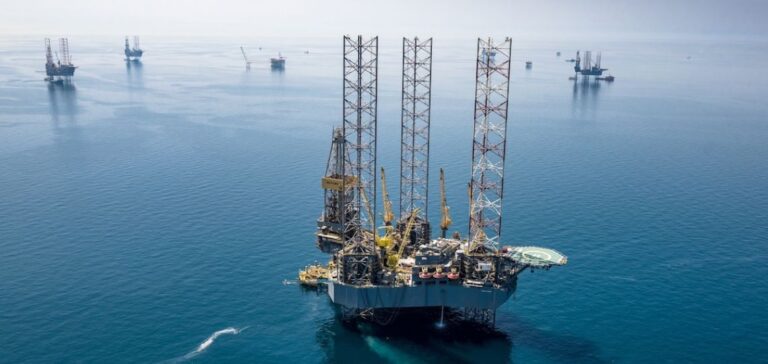Saudi Arabia and Kuwait declared on Thursday that they were the only legitimate operators of a gas field also claimed by Iran, a few days after Teheran threatened to continue exploring the field.
Offshore gas dispute: Iran, Saudi Arabia and Kuwait at odds over Arash/Dorra field
With reserves estimated at 220 billion cubic meters, the field, known as Arash in Iran and Dorra in Kuwait and Saudi Arabia, has long been the subject of dispute between the three countries, being located on their maritime borders.
Kuwait and Saudi Arabia “are the only countries with sovereign rights to exploit the riches of this area”, they said in a joint statement released by the official Saudi press agency Spa.
The two Gulf states also called on the Islamic Republic of Iran to “negotiate” the demarcation of its maritime borders, in order to resolve the issue. An agreement on joint exploitation had been signed in March 2022 between Kuwait and Saudi Arabia, but had been described as “illegal” by Tehran. On Sunday, Iranian Oil Minister Javad Owji said Tehran would “assert its rights and interests” in the gas field in the absence of a “willingness to cooperate” from Saudi Arabia and Kuwait.
Iran-Kuwait gas war: From contentious concessions to failed negotiations
The dispute over the field dates back to the 1960s, when Kuwait granted a concession at Dorra to Anglo-Iranian Petroleum, which later became part of BP, while Iran gave a concession to Royal Dutch/Shell. The two concessions overlap in part of the gas field.
The two countries have been negotiating for years to resolve this disagreement, to no avail. In 2001, Iran began drilling in the field, prompting Kuwait and Saudi Arabia to definitively fix their maritime border and agree to jointly exploit the deposit.






















